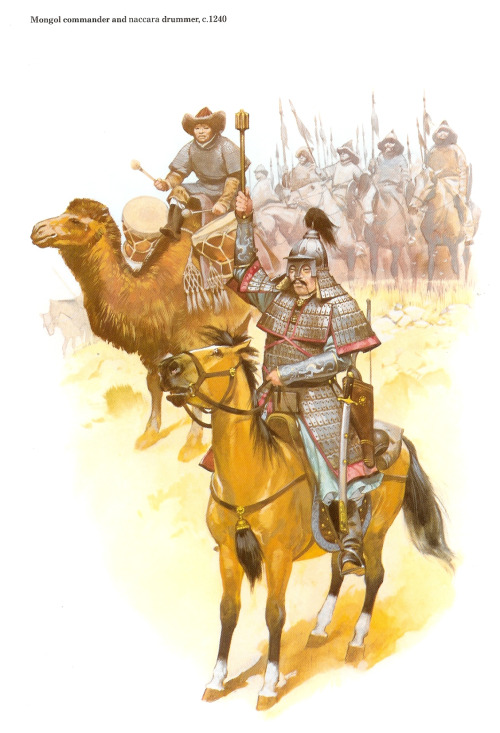
Hulegu’s original proposal offered the West good terms. The Ilkhans had established their bona fides through their amazing victories against the center of the Islamic world. Of particular interest to Hulegu was Latin sea power, which, combined with a Mongol land offensive, could break the back of the Mamluk Sultanate. After victory, Hulegu planned to restore Jerusalem to Latin rule, as well as return lands previously held by the barons of the Crusader States. In effect, Outremer would once again resemble the land it was before the Battle of the Horns of Hattin (1187). That the Latin West considered a Christian-Mongol alliance to be an effective means for reconquering the Holy Land can be gleaned from the prominence it achieved in crusading theory. As the Ilkhans pointed out, the Mamluks would be wedged between, and crushed by, such an alliance. Alone, each side could win battles but not the war against the Mamluks. Together, the Mamluks would be destroyed to the mutual benefit of Latins and Ilkhans.
How feasible was this plan? The Mongols could be effective as a shock force. If a general passage could have been launched within a few years of Horns, then the Crusaders’ main concerns would have been mop-up operations, building fortifications, and planning solid occupation. Synchronizing Ilkhan-Latin operations was a difficult task, but given the slow rate at which the Mamluk army could regenerate, Crusaders would have been at a great advantage. Crusading theory, moreover, had already shifted to the concept of using expeditionary forces (particular passages) that would be followed by a full-scale Crusade (general passage). The main problem facing such a joint attack was the inability of western Europe to launch a major Crusade on the traditional model in the latter half of the thirteenth century. Hence, those historians who have seen the Latin-Ilkhan alliance as a “missed opportunity” are correct. The Ilkhans offered an attractive opportunity that, mostly because of events taking place in western Europe, could not be seized upon.
If such a joint assault had succeeded, would it have resulted in exchanging an Islamic military threat for Mongol domination? The evidence suggests otherwise. The Ilkhans proposed an anti-Mamluk alliance with the Latins because they were not able to maintain a long-term presence in the region. This realization by the Ilkhans can be detected in the shifting tenor of their correspondence with the Latin West. Initially, the Ilkhans demanded nothing less than the complete submission of the West to the Mongol “mandate of heaven” that was inherited from Chinese political theory. Hulegu moderated his tone in a way that smacked of partnership rather than subordination. Furthermore, the fact that the Mongols could not maintain a permanent presence in Syria was advantageous to the long-term goals of the Crusades. Areas that touched upon vast pastureland tended to fall under direct Mongol rule. In areas with little pasture (such as Syria) the Mongols granted considerable self-rule and autonomy. Thus, the very reason the Mongols could not deal a deathblow to the Mamluks alone was also a guarantee of Crusader State autonomy. The Mongols also respected legitimate rights to territory, and their offer to return the Crusader States to their status before Hattin was probably sincere. The Ilkhans restored lands to Bohemond to which he had a legitimate claim. The Ilkhans might well have seen the Latins as future subjects of their empire, but the yoke would have been hardly noticeable to the Latins.
Historians who fail to see an Ilkhan-Latin alliance as a “missed opportunity” tend to dwell too much on the difficulties in perfectly synchronizing a joint attack. As the Mongols demonstrated at Horns, they were perfectly capable of destroying the Mamluk army, even if they were unable to capitalize on their victories. Even if their activities were timed on a loose “more or less” timetable, the Latins would have reaped great benefits. Previous Crusades crashed upon the rocks of perfectly intact Islamic armies. A full-scale Crusade, arriving within a few years of a “particular passage,” that made use of Mongol military might, would have found a different situation. In the end, western Europe was unable to take advantage of the opportunity, even if the proposal was feasible.
–TODD MARX, CONCORD, NEW HAMPSHIRE